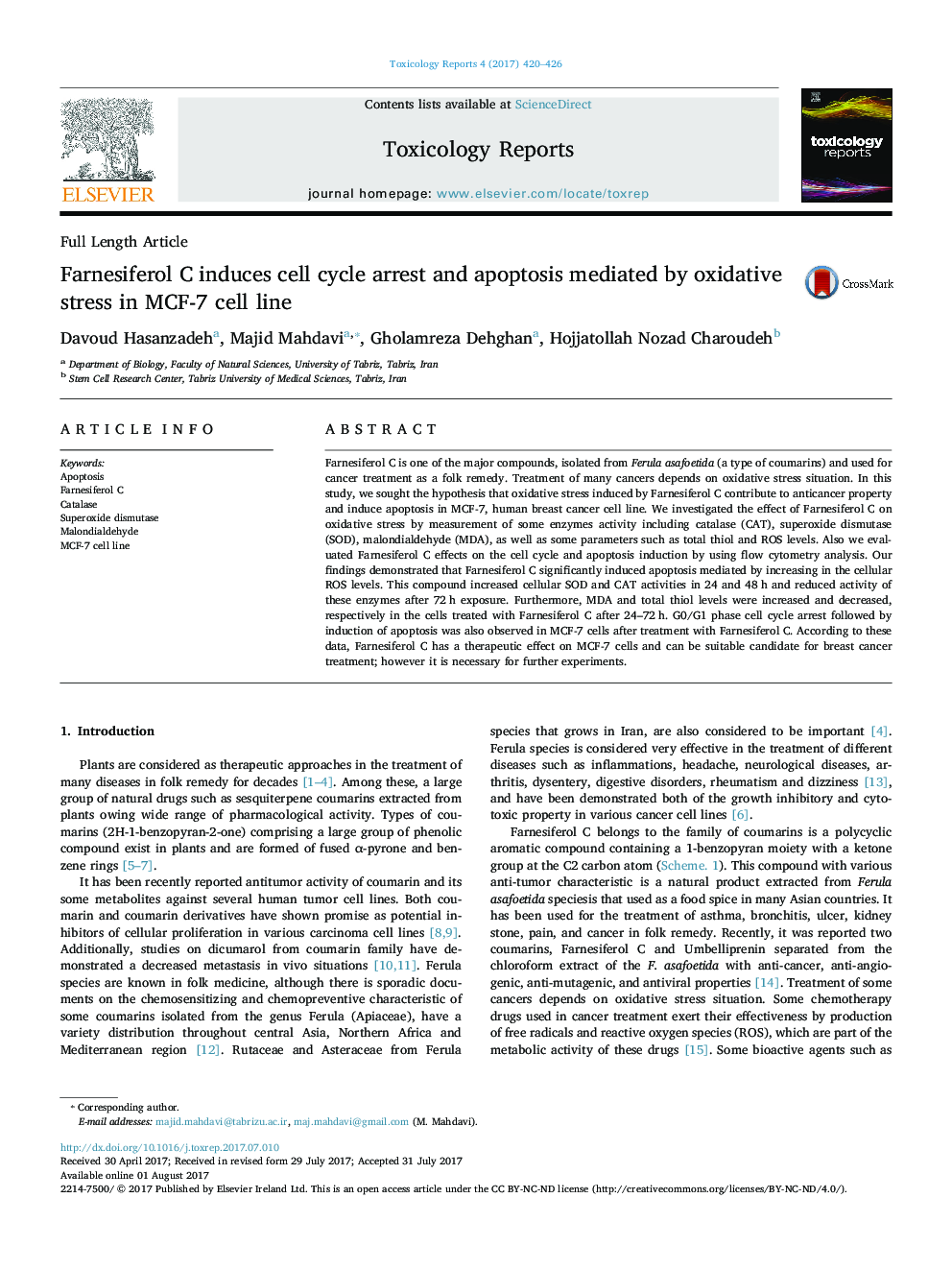| Article ID | Journal | Published Year | Pages | File Type |
|---|---|---|---|---|
| 5558685 | Toxicology Reports | 2017 | 7 Pages |
â¢Farnesiferol C (FC) reduced viability in MCF-7 cells.â¢This compound causes G0/G1 cell cycle arrest in the cells.â¢The FC leads to cellular oxidative stress and induction of apoptosis in MCF-7 cells.
Farnesiferol C is one of the major compounds, isolated from Ferula asafoetida (a type of coumarins) and used for cancer treatment as a folk remedy. Treatment of many cancers depends on oxidative stress situation. In this study, we sought the hypothesis that oxidative stress induced by Farnesiferol C contribute to anticancer property and induce apoptosis in MCF-7, human breast cancer cell line. We investigated the effect of Farnesiferol C on oxidative stress by measurement of some enzymes activity including catalase (CAT), superoxide dismutase (SOD), malondialdehyde (MDA), as well as some parameters such as total thiol and ROS levels. Also we evaluated Farnesiferol C effects on the cell cycle and apoptosis induction by using flow cytometry analysis. Our findings demonstrated that Farnesiferol C significantly induced apoptosis mediated by increasing in the cellular ROS levels. This compound increased cellular SOD and CAT activities in 24 and 48Â h and reduced activity of these enzymes after 72Â h exposure. Furthermore, MDA and total thiol levels were increased and decreased, respectively in the cells treated with Farnesiferol C after 24-72Â h. G0/G1 phase cell cycle arrest followed by induction of apoptosis was also observed in MCF-7 cells after treatment with Farnesiferol C. According to these data, Farnesiferol C has a therapeutic effect on MCF-7 cells and can be suitable candidate for breast cancer treatment; however it is necessary for further experiments.
Graphical abstractDownload high-res image (110KB)Download full-size image
